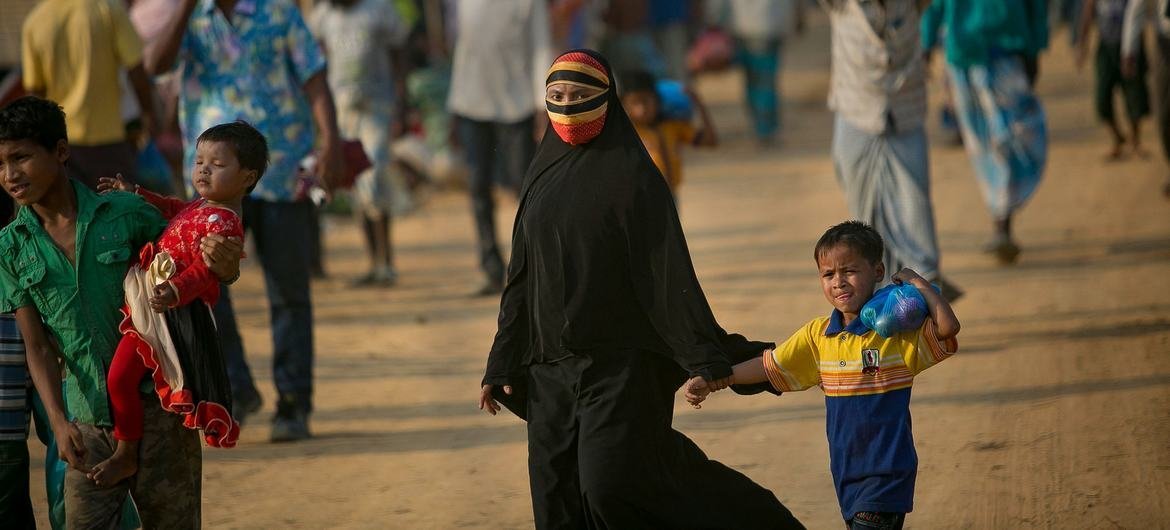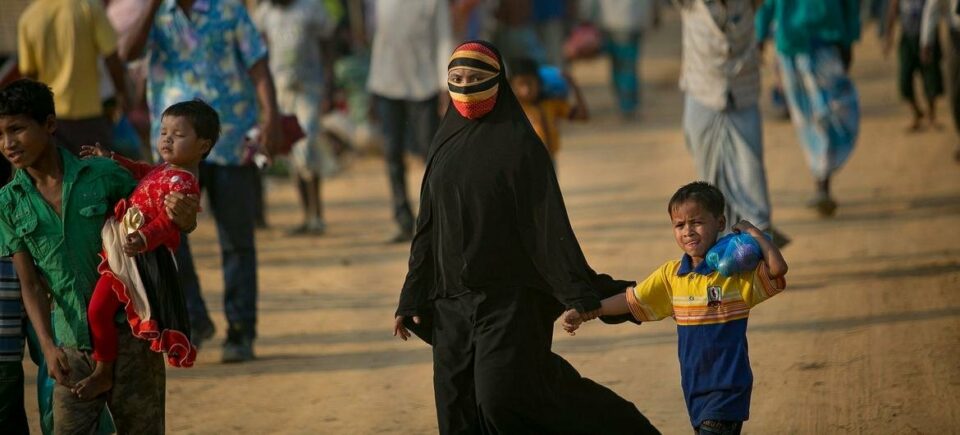UN independent experts on Thursday warned of catastrophic consequences for Myanmar Rohingya refugee families living in camps in neighbouring Bangladesh, if life-saving food aid is slashed.
The Human Rights Council-appointed experts called for donors worldwide to give generously to the UN World Food Programme (WFP) Rohingya Refugee Response fund.
“The planned rations reductions are the devastating consequence of the international community’s failure to provide funding for initiatives that address the fundamental needs of Rohingya refugees”, the two Special Rapporteurs said in a statement. “Rations will be slashed for Rohingya refugees starting in a few weeks, just before Ramadan. This is unconscionable”.
Rations reduced next month
WFP has announced that it will reduce rations for Rohingya refugees by 17 per cent in March and warned that if no new funding commitments were made by April, a new round of deeper cuts will have to be made. It is appealing for $125 million in funding.
“If these cuts are made, they will be imposed on vulnerable people who are already food insecure. Acute malnutrition levels remain high, and chronic malnutrition is pervasive among the Rohingya refugee population in Bangladesh, with more than a third of children stunted and underweight,” the UN experts said.
“The repercussions of these cuts will be immediate and long-lasting, as refugees remain almost entirely dependent on this assistance for their nutritional needs,” Tom Andrews and Michael Fakhri added.

‘Particularly exposed’
“The most vulnerable, including children under five, adolescent girls, and pregnant and breastfeeding mothers, will be particularly exposed,” they said.
More than 700,000 mainly-Muslim Rohingya were forced to flee their homes in Myanmar in 2017 to escape a brutal military crackdown, which many – including the then UN human rights chief – characterized as a genocide.
Around one million members of the ethnic minority are living in crowded refugee camps in Bangladesh, the largest concentration in the world.
“The Rohingya, survivors of genocidal attacks by the Myanmar military, are now further victimised by the failure of the international community to ensure their basic right to food”, the independent experts declared.
Concern over infighting
“Reductions in vital food assistance can make refugees more desperate, which could fuel further violence and unrest in the camps. This could also lead to a myriad of human rights concerns, such as a heightened risk of human trafficking, particularly of children and girls, and more refugees embarking on perilous boat journeys.”
Noting that many countries have repeatedly called for justice and accountability for the Rohingya, “those in the camps need more than words and statements of solidarity.
“Rohingya refugees need immediate action from the international community to ensure that these cuts – and their generation-spanning consequences – are avoided. The stakes could not be higher,” they said.
Independent rights experts and Special Rapporteurs are appointed by the UN Human Rights Council in Geneva to monitor and report on thematic issues or specific country situations.
They operate in their individual capacities and are independent from any government or organization. They are not UN staff and do not receive payment for their work.
As an independent media platform, we do not take advertisements from governments and corporate houses. It is you, our readers, who have supported us on our journey to do honest and unbiased journalism. Please contribute, so that we can continue to do the same in future.

